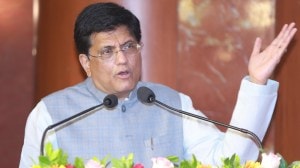A man in full
The former senators letters make a wonderful bedside collection
Daniel Patrick Moynihan,known to his mother as Dan and to everyone else as Pat,served four presidents John F. Kennedy,Lyndon Johnson,Richard Nixon and Gerald Ford as adviser,speechwriter and ambassador,in Delhi and at the United Nations. He represented New York for 24 years in the United States Senate. When he retired,one scholar said he brought to that job luminous intellect,personal conviction,deep historical knowledge,the eye of an artist and the pen of an angel,and above all,an incorruptible devotion to the common good. Someone else called him the nations best thinker among politicians since Lincoln,and its best politician among thinkers since Jefferson.
Now a New York Times journalist,Steven Weisman has edited a 671-page collection of Pats letters,diary entries,reports to his New York constituents addressing them as Dear New Yorker and what amount to state papers written for his four presidents. Almost every page is enlivened by a sharply minted phrase,an enchanting vignette,a joke or a shrewd inversion of the conventional wisdom.
Here is Pat learned,Pat witty,angry,generous and prophetic by turns. Occasionally he flatters outrageously. Very occasionally,he stoops to fund-raising or more frequently to self-justification. He comforts the afflicted,commiserating with the Tammany boss,Carmine De Sapio,imprisoned for fraud. He confronts the powerful,firmly taking on Nixons vice president,Spiro Agnew,Ted Kennedy or Arthur Punch Sulzberger of the Times.
He knew everyone. He wrote to cardinals,presidents,senators,to the Oxford historian Alan Bullock and to the theologian Reinhold Niebuhr,to William F. Buckley and to Jackie Kennedy Onassis. In a letter to Yoko Ono,he offers to teach Sean Lennon about Northern Ireland. A couple of weeks later he offers,at some length,to explain the history of ethnic conflict in the 20th century to Woody Allen. He sends limericks to Robert Conquest,a historian of the Soviet Union. He also has time to exchange charming letters with the preteen daughter of an old friend,who has asked him about the games he played as a child: We used to play marbles for keeps. If you lost,you lost. It is the same way with politics,but not everybody knows this.
He suggests to Nixon that the American government ought to stop characterising people as white and non-white. He receives a letter from a right-wing correspondent from Georgia,sending him 5 to get a haircut. Pat replies that it would be inappropriate to spend the money on personal adornment; he will send it to the National Association for the Advancement of Coloured People instead.
There are recollections of a childhood growing up poor in a single-parent family in New York,collecting cents on coke bottles. There are occasional flashes of temper,usually urbane,especially when he feels he has been misreported. There is brilliant reportage of his own: the White House on the night of Kennedys assassination,a royal wedding in Bhutan and dining with the Foreign Legion in Sarajevo in 1992. He returns again and again to his master themes: the shallowness of upper-class liberals; ethnicity is more important than class; the CIA betrayed America by exaggerating the danger from the Soviet Union; Pennsylvania Avenue in Washington,DC,must be made worthy of an imperial America. I am of those who believe that America is the hope of the world,and for that time given him the President is the hope of America. There can be no better bedside collection for anyone who is interested in the history of America and the world in the second half of the 20th century or in a life lived bravely.
- 01
- 02
- 03
- 04
- 05































